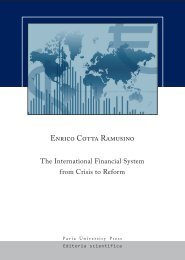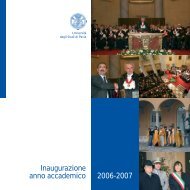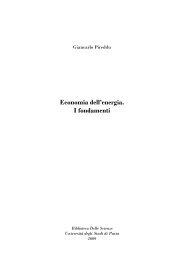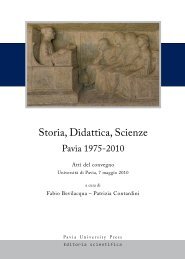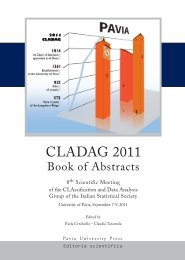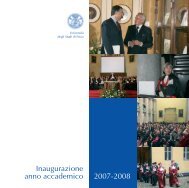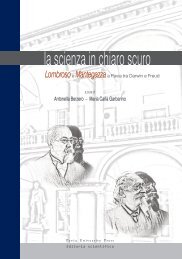The Palestinian Economy. Theoretical and Practical Challenges
The Palestinian Economy. Theoretical and Practical Challenges
The Palestinian Economy. Theoretical and Practical Challenges
Create successful ePaper yourself
Turn your PDF publications into a flip-book with our unique Google optimized e-Paper software.
270<br />
Zagha<br />
a final account report of the previous year must be submitted to the minister for approval<br />
within the first two months of the subsequent year. 40<br />
<strong>The</strong> legislation on financial transfers to local authorities is articulated in article 26 of<br />
the LGL. It in fact constitutes the main new legal form in this regard. <strong>The</strong> same law<br />
provides that 50% of the fees <strong>and</strong> fines collected under the Transport Law shall be<br />
returned to the local authority within which they were collected, although details on<br />
implementation are lacking. <strong>The</strong> 1954 Property Tax law is still relevant within municipal<br />
boundaries. In addition, the legislation on Gaza still remains to be reviewed. <strong>The</strong> LGL<br />
provides that property tax shall be collected in accordance with the Property Tax Law<br />
within the Municipal Boundaries no. 11 of 1954. This means that the old system will<br />
continue to function under the new law. It is understood that the Ministry of Finance<br />
(MoF) has been retaining 10% of collected taxes to cover collection expenses <strong>and</strong><br />
transfers the remaining 90% to the MoLG which, in turn, supposedly allocates the money<br />
to LGUs based on the criteria set forth in article 26 of the LGL.<br />
4.1.5. Enforcement<br />
A main deficiency of the LGL is the lack of a comprehensive set of enforcement tools to<br />
enable LGUs to carry out their responsibilities. <strong>The</strong> only enforcement tool provided by<br />
the LGL is article 27, which is based on the 1955 Law <strong>and</strong> titled “Collecting of Local<br />
Authorities Revenues”. According to this article, in cases where due taxes <strong>and</strong> fees are<br />
not paid within a fifteen-day period, the council of an LGU will send notification<br />
requesting payment within fifteen days. <strong>The</strong> legislation provides for legal remedies<br />
against the request; an objection may be filed in court. If the due sum is not paid by the<br />
fifteen-day deadline, the council may order the sequestration <strong>and</strong> sale of movable<br />
property to cover the debt. <strong>The</strong> council may also order the withholding of one-fourth of<br />
the taxpayer’s salary.<br />
<strong>The</strong> issue here is that this provision deals with enforcement only in relation to<br />
property tax or fees. <strong>The</strong> LGL does not deal with enforcement of issues such as protection<br />
of l<strong>and</strong>scape, parks, display of advertising, protection of the city or town’s appearance,<br />
prevention of health problems, food sale in designated areas <strong>and</strong> noise levels. Such issues<br />
40 See articles 28, 30 <strong>and</strong> 32 of the LGL.





